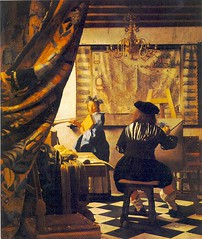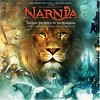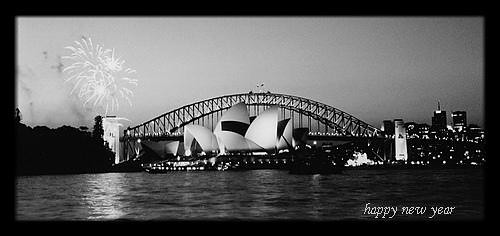 Johannes Vermeer, Allegory of Painting (The Painter In His Studio), 1666
This afternoon I'm working on a brief analysis of the poetry of Charles Baudelaire, one of the most famous French poets, for my World Literature class. The only background I know of him is the two and a half page introduction to just a few of his poems in my anthology, but he and his art are intriguing nonetheless. They say Baudelaire wrote poetry to shock, and so it seems, because even in the 21st century it still does. In his poem "The Carcass," he observes to his female companion that for all her beauty, she will one day end up as the maggot-ridden, half-eaten animal they find on their afternoon stroll, and then she will be hard pressed to "explain to the worms / Who cherish your body so fine, / That I am the keeper for corpses of love / Of the form, and the essence divine!" Encouraging stuff.
Johannes Vermeer, Allegory of Painting (The Painter In His Studio), 1666
This afternoon I'm working on a brief analysis of the poetry of Charles Baudelaire, one of the most famous French poets, for my World Literature class. The only background I know of him is the two and a half page introduction to just a few of his poems in my anthology, but he and his art are intriguing nonetheless. They say Baudelaire wrote poetry to shock, and so it seems, because even in the 21st century it still does. In his poem "The Carcass," he observes to his female companion that for all her beauty, she will one day end up as the maggot-ridden, half-eaten animal they find on their afternoon stroll, and then she will be hard pressed to "explain to the worms / Who cherish your body so fine, / That I am the keeper for corpses of love / Of the form, and the essence divine!" Encouraging stuff.
I'll post something a bit more palatable of his here. "The Voyage," according to my Norton Anthology of World Masterpieces, is a description of "the opposite of inertia, an active search for goals always out of reach." The "Invitation" summons the reader to "an exotic land of peace, beauty, and sensuous harmony. The voyage is imaginary, of course, implying two forms of escape from reality: an escape out of real time into a primeval accord of the senses, and an escape into another artistic vision--the glowing interiors painted by such Dutch masters as Jan Vermeer."
Invitation to the Voyage
by Charles Baudelaire
translated by Richard Wilbur
My child, my sister, dream
How sweet all things would seem
Were we in that kind land to live together,
And there love slow and long,
There love and die among
Those scenes that image you, that sumptuous weather.
Drowned suns that glimmer there
Through cloud-disheveled air
Move me with such a mystery as appears
Within those other skies
Of your treacherous eyes
When I behold them shining through their tears.
There, there is nothing else but grace and measure,
Richness, quietness, and pleasure.
Furniture that wears
The lustre of the years
Softly would glow within our glowing chamber,
Flowers of rarest bloom
Proffering their perfume
Mixed with the vague fragrances of amber;
Gold ceilings would there be,
Mirrors deep as the sea,
The walls all in an Eastern splendor hung--
Nothing but should address
The soul's loneliness,
Speaking her sweet and secret native tongue.
There, there is nothing but grace and measure,
Richness, quietness, and pleasure.
See, sheltered from the swells
There in the still canals
Those drowsy ships that dream of sailing forth;
It is to satisfy
Your least desire, they ply
Hither through all the waters of the earth.
The sun at close of day
Clothes the fields of hay,
Then the canals, at last the town entire
In hyacinth and gold:
Slowly the land is rolled
Sleepward under a sea of gentle fire.
There, there is nothing but grace and measure,
Richness, quietness, and pleasure.
some nights i am glad to be caught up
in this cosmic squall called life
i rest in thankfulness for my place
in this sickly sway of the heavens
for my heart that beats
with the rhythm of the falling stars
it means i am small
it means i matter
i am the dust speck
in this oyster of a universe
and it means that someday i will dwell
in the heart of the great luminous pearl
of redemption
1.25.06
crystal l.
I think it is people like my grandparents who have taught me the truth of this poem. They are not headstrong. They do not rush in when a hero is needed to save the day. They are gently saving it, bit by bit, behind the scenes: digging rocks out of the garden, loving their children, cooking a meal, carving and fitting fresh, clean wood.
Danger calls for urgency. Extraordinary circumstances need actions that are un-pondered; they call upon sheer survival instinct. It is courageous to block a speeding bullet for someone, or to march out in war, or to save a person from drowning, but I hold that courage is also steady and perpetual. It sometimes requires great thought and detail. The single mother who cooks dinner every night after work; the boy who musters the nerve to ask his teacher for help; the misunderstood artist who continues to create... these too demonstrate courage.
It is the kind of courage I want. This description fascinates me: Not strangeness, but a leap forward of the same quality. My courage does not consist of those things which I am not, but of the "crescendo" of those things I already am. My courage will not manifest itself in a marvelous act that is completely out of my character; it will be the fruition, "the culmination," of what good I am currently cultivating in my character: love, patience, wisdom, joy. If courage were the abnormal, we would think of it as a miracle visited on the lucky, on the brave, only occasionally. If courage can indeed be cultivated, it must grow out of something that is already in us.
I don't know about you, but that inspires me.
The Abnormal Is Not Courage
by Jack Gilbert
The Poles rode out from Warsaw against the German
Tanks on horses. Rode knowing, in sunlight, with sabers.
A magnitude of beauty that allows me no peace.
And yet this poem would lessen that day. Question
The bravery. Say it's not courage. Call it a passion.
Would say courage isn't that. Not at its best.
It was impossible, and with form. They rode in sunlight.
Were mangled. But I say courage is not the abnormal.
Not the marvelous act. Not Macbeth with fine speeches.
The worthless can manage in public, or for the moment.
It is too near the whore's heart: the bounty of impulse,
And the failure to sustain even small kindness.
Not the marvelous act, but the evident conclusion of being.
Not strangeness, but a leap forward of the same quality.
Accomplishment. The even loyalty. But fresh.
Not the Prodigal Son, nor Faustus. But Penelope.
The thing steady and clear. Then the crescendo.
The real form. The culmination. And the exceeding.
Not the surprise. The amazed understanding. The marriage,
Not the month's rapture. Not the exception. The beauty
That is of many days. Steady and clear.
It is the normal excellence, of long accomplishment.
(taken from "The Contemporary American Poets: American Poetry since 1940," edited by Mark Strand, Signet Classic, copyright 1969)
 This song plays during the credits of The Lion, The Witch, and The Wardrobe and appears on the soundtrack. Specially written for the film, it functions both as Lucy's theme song and the anthem of someone new to the numinous, entranced with the beyond, with the place where fantasy meets supernatural reality.
This song plays during the credits of The Lion, The Witch, and The Wardrobe and appears on the soundtrack. Specially written for the film, it functions both as Lucy's theme song and the anthem of someone new to the numinous, entranced with the beyond, with the place where fantasy meets supernatural reality.
I do love this song, but saying much more than that would cheapen it. Suffice it to say that I have my own wardrobe and my own Narnia, places I see shadows of in my head that I believe will one day be fully revealed. Now we see through a glass darkly... It is no shallowness, no frivolous child's fantasy to seek this "deeper wonderment." Perhaps it is for the poets and artists and composers to see more clearly, but I think everyone carries a bit of it in them. That is, if they haven't completely trampled the child, the wunderkind, that lives inside them. May our theological profundity always be tempered with a healthy wonder, a divine curiosity and vision. May Narnia's virgin snow always lie on the other side of the common wardrobe.
Wunderkind
by Alanis Morissette
Oh, perilous place walk backwards toward you
Blink disbelieving eyes chilled to the bone
Most visibly brave, no apprehended bloom
First to take this foot to virgin snow
I am magnet for all kinds of deeper wonderment
I am a wunderkind, ohh oh oh
And I live the envelope pushed far enough to believe this
I am a princess on the way to my throne
Destined to serve, destined to roam
Oh, ominous place spellbound and un-child-proofed
My least favorite shelter bear alone
Compatriots in face, they’d cringe if I told you
Our best back pocket secret, our bond full blown
And I am a magnet for all kinds of deeper wonderment
I am a wunderkind, ohh oh oh
And I am pioneer naïve enough to believe this
I am a princess on the way to my throne
Destined to seek, destined to know
Most beautiful place reborn and blown off roof
My view about-face whether great will be done
And I am a magnet for all kinds of deeper wonderment
I am a wunderkind, ohh oh oh
I am a groundbreaker naïve enough to believe this
I am a princess on the way to my throne
And I am a magnet for all kinds of deeper wonderment
I am a wunderkind, ohh oh oh
I am a Joan of Arc and smart enough to believe this
I am a princess on the way to my throne
Destined to reign, destined to roam
Destined to reign, destined to roam
Another selection from Good Poems. These speak for themselves.
To be of use
by Marge Piercy
The people I love the best
jump into work head first
without dallying in the shallows
and swim off with sure strokes almost out of sight.
They seem to become natives of that element,
the black sleek heads of seals
bouncing like half-submerged balls.
I love people who harness themselves, an ox to a heavy cart,
who pull like water buffalo, with massive patience,
who strain in the mud and the muck to move things forward,
who do what has to be done, again and again.
I want to be with people who submerge
in the task, who go into the fields to harvest
and work in a row and pass the bags along,
who are not parlor generals and field deserters
but move in a common rhythm
when the food must come in or the fire be put out.
The work of the world is common as mud.
Botched, it smears the hands, crumbles to dust.
But the thing worth doing well done
has a shape that satisfies, clean and evident.
Greek amphoras for wine or oil,
Hopi vases that held corn, are put in museums
but you know they were made to be used.
The pitcher cries for water to carry
and a person for work that is real.
 I must recommend this book to you. Good Poems, arranged by Garrison Keillor of NPR fame is a fantastic selection of poems that he read on the daily five-minute show The Writer's Almanac. The poetry is simple and beautiful; in Keillor's words, "The goodness of a poem is severely tested by reading it on the radio. The radio audience is not the devout sisterhood you find at poetry readings, leaning forward, lips pursed, hanky in hand; it's more like a high school cafeteria. People listen to poems while they're frying eggs and sausage and reading the paper and reasoning with their offspring, so I find it wise to stay away from stuff that is too airy or that refers off-handedly to the poet Li-Po or relies on your familiarity with butterflies or Spanish or Monet."
I must recommend this book to you. Good Poems, arranged by Garrison Keillor of NPR fame is a fantastic selection of poems that he read on the daily five-minute show The Writer's Almanac. The poetry is simple and beautiful; in Keillor's words, "The goodness of a poem is severely tested by reading it on the radio. The radio audience is not the devout sisterhood you find at poetry readings, leaning forward, lips pursed, hanky in hand; it's more like a high school cafeteria. People listen to poems while they're frying eggs and sausage and reading the paper and reasoning with their offspring, so I find it wise to stay away from stuff that is too airy or that refers off-handedly to the poet Li-Po or relies on your familiarity with butterflies or Spanish or Monet."
Thanks to my roommate for giving me this book after I coveted it for many months. Here is a selection I found and fell in love with this morning.
Alley Violinist
by Robert Lax
if you were an alley violinist
and they threw you money
from three windows
and the first note contained
a nickel and said:
when you play, we dance and
sing, signed
a very poor family
and the second one contained
a dime and said:
i like your playing very much,
signed
a sick old lady
and the last one contained
a dollar and said:
beat it,
would you:
stand there and play?
beat it?
walk away playing your fiddle?



